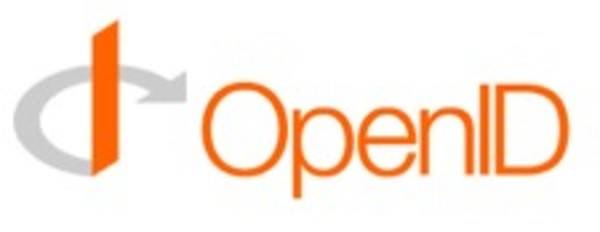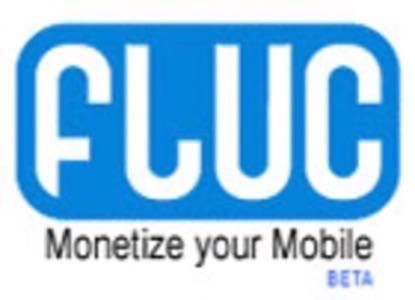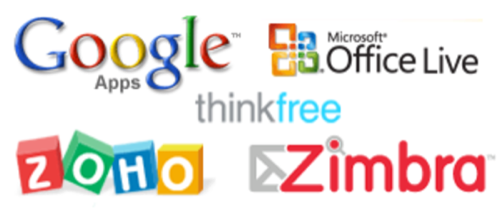Here is a summary of the week’s Web Tech action on Read/WriteWeb. For those of you reading this via our website, note that you can subscribe to the Weekly Wrapups, either via the special RSS feed or by email.
Web News
This week the Facebook Beacon saga came to an end, after the company added a global opt-out to their controversial advertising system, and CEO Mark Zuckerberg apologized for the way they’d handled the rollout. Earlier in the week Facebook’s stance was:
We Don’t Collect Info Unless You Opt-In, but by the end of the week it was clear that a global opt-out was the only thing that was going to make the controversy go away.

See also Alex Iskold’s in-depth analysis of Facebook and The Myth Of Contextual Advertising, for a critical look at Beacon.
In other Facebook news, Facebook apps hit 10k in number – so the web app platform is still going strong, even if the advertising platform is a mess.
OpenID 2.0 finally launched this week, after what Marshall Kirkpatrick recently described as “a long, long time of political infighting over either semi-relevant minutea or deal-breaking technical details.” The new version improves security and usability — and will hopefully be the catalyst for more Internet companies to adopt it.

A week doesn’t go by these days without some Google news. This week we heard that JotSpot will spawn Google Sites, an intranet and extranet site building tool. Also Compete provided data that showed Google Docs as clear leader in the Web Office market. Finally, Google announced that GMail is adding AIM.
In other news this week:
- Online Ad Spend to Jump in 2008 Thanks to Sports, Politics
- Wikipedia to Pay Illustrators
- 3.3 Billion Mobile Phone Subscriptions; 35% of US Tweens Own a Mobile phone
- Adobe Debuts Flash Media Server 3 – Slashes Price
- US Congress: Wifi Providers Must Report Dirty Pictures to Government
- MingleNow to Close 7 January – Forced By Yahoo?
- Internet to Invade the Airways
- Blog Council Launches, Fumbles on Day One
- Microsoft Advances XBRL Data Standard in the US, Paving Way for Big Innovation In Financial Analysis
Web Products
Fluc: Put Your Mobile Phone to Work For You
Australian startup Fluc is an innovative new mobile advertising network that not only lets publishers monetize their content, but also lets mobile users opt-in to be paid to recieve targeted SMS-based advertisements.

Meebo + Platform + VideoEgg Ads Suddenly Makes Business Sense
In a move further differentiating themselves from countless other platform plays, web-IM service Meebo announced this week that they have partnered with VideoEgg to offer Meebo platform participants a 50/50 revenue split from the high-profile video and overlay ad network. While other platforms take a hands-off approach to partner advertising, Meebo is delivering it themselves.

BookSwim is essentially a Netflix-like rental by mail program for books. You sign up, choose the books you want, they get mailed, you send them back when you’re done and get the next book on your list. Josh Catone had trouble grasping what makes the service useful to the average reader. It may be, however, that the service isn’t useful to the average reader.

Other Web products reviewed this week:
- Recommendation Engine MyStrands Expands War Chest to $55m to Go Beyond Music
- Mixx, a Gorgeous Digg Competitor, Gets in Bed With LA Times
- GroceryGuide Saves You Money on Food
- SourceForge.net Launches Open Source Services Marketplace
- Facebook not for You? Multiply.com’s Upgrade Looks Great
Analysis
Web Office: 2007 Year in Review

Over the next few weeks we’ll be reviewing a number of Web product categories on Read/WriteWeb, summarizing what’s happened in 2007 – and what to look forward to in 2008. We started with the Web Office, a market that underwent a lot of changes this year. Probably the biggest change was that Google Apps ramped up this year, starting with the release of Google Apps Premier in February. And 2007 continued the trend of acquisitions in this market, which started in 2006 with the likes of Writely and JotSpot. In 2007 Yahoo acquired Zimbra and Google acquired a number of small startups – including GrandCentral (online telephony service) and Zenter (presentations software).
Check out the full article for all you need to know about Web Office in 2007.
2008 Will Be The Year of Business Networking
In this post Bernard Lunn delivered three reasons for the above prediction, plus six specific predictions and one interesting dark horse. One of the predictions was that there will be a globalization roll-up. There are business networks in Germany (Xing) and France (Viadeo) where LinkedIn does not play well, for simple language reasons. The same may be true in other non-English speaking markets – and if not, the land grab is still open folks!

Other analysis posts:
R/WW Network Blogs
last100
The big story on our Digital Lifestyle blog last100 this week was Nokia and Universal’s announcement of “Comes With Music” devices . Announced at the annual Nokia World conference, “Comes With Music” will enable customers to buy a Nokia device with a year of unlimited access to “millions of tracks”, and, rather surprisingly, get to keep those tracks once the twelve month period ends. Of the four major labels, however, Universal Music is the only one to have signed on. In a follow up post, last100 editor Steve O’Hear noted that “Comes With Music” service will employ Windows DRM.

Alt Search Engines
This week on AltSearchEngines, editor Charles Knight announced The Alternative Search Engine of the Year, 2007. He had narrowed down his popular Top 100 list to 10 finalists, and the winner was…. Quintura! In Charles’ view, Quintura has demonstrated it will “‘rock and shock’ the Search world and alter the staus quo.”

Also this week Charles reported live from SES Chicago. Some highlights:
- Transformaton of Local in a Search-Driven World
- Net Neutraity: “Won’t be fooled again!”
- Personalization, User Data & Search
Read/WriteTalk
This week Sean Ammirati of Read/WriteTalk stopped by Yahoo’s Brickhouse and bumped into some Irish entrepreneurs, who were touring Silicon Valley. In the resulting interview, Sean noted that it was “a good reminder how far the US has to go, [after] hearing their reflections on how bad broadband and mobile communications are here.”

Poll
This week Technorati launched a re-design, including a news aggregator frontpage nickamed ‘the Percolator’. We asked RWW readers: Is the Technorati Percolator Useful as a News Aggregator?. The results:
Yes, I will use it daily 11%
Yes, but only every few days 11%
Meh, maybe I’ll check every week or so 5%
No, this isn’t useful as a news aggregator 35%
Percolator? Isn’t that a coffee maker? 39%
The ‘WTF’ option got the most votes, indicating that most people didn’t like (or get?) the percolator concept. But overall, it seems most respondents won’t use Technorati as their daily news aggregator. However Technorati is obviously still a very useful as a place to go for blogosphere links and data.
That’s a wrap for another week! Enjoy your weekend everyone.





















